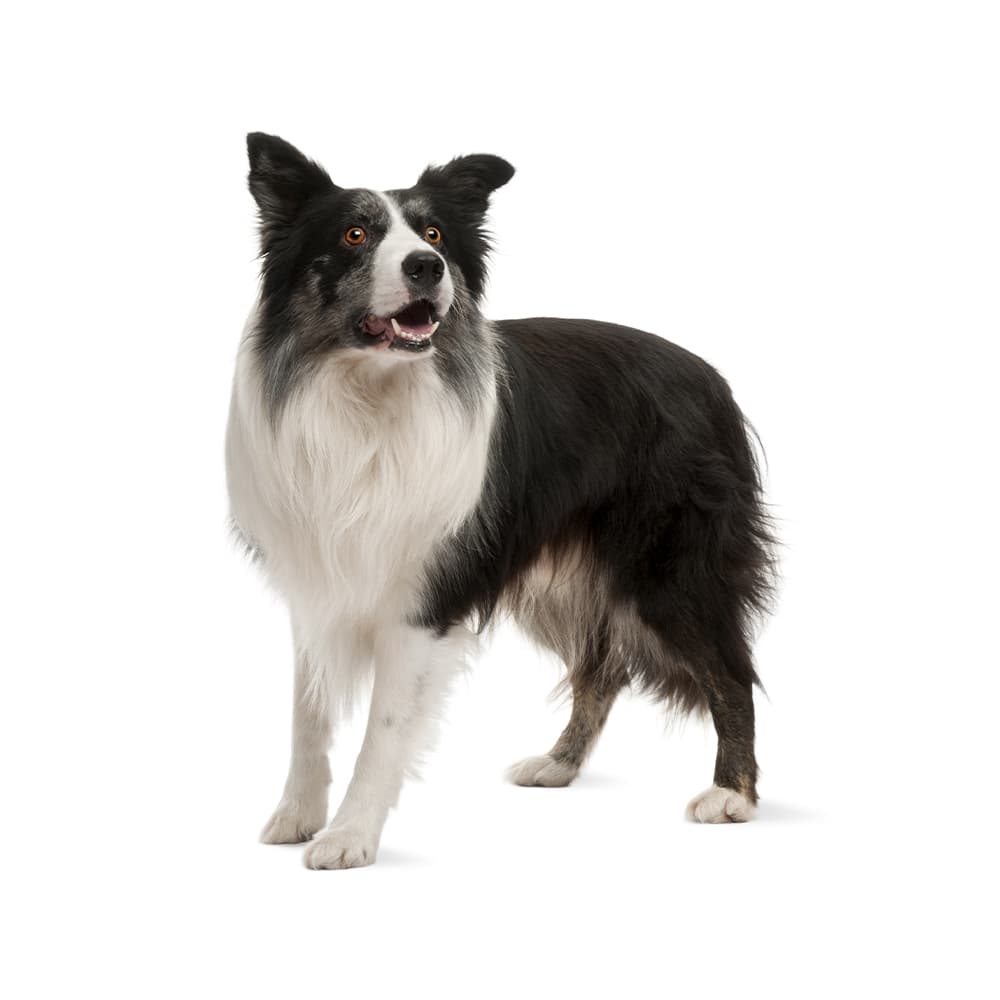Discover your dog's connection to this breed and 200+ others


Discover your dog's connection to this breed and 200+ others



The history of the Border Collie can be traced back to the British Isles, specifically the border region between Scotland and England, from which the breed takes its name (hence, 'Border' Collie). This breed was developed over hundreds of years, beginning in the Roman era and continuing through the Viking invasions, to meet the demands of farmers for a robust, agile, and intelligent herding dog. The Border Collie as we know it today emerged in the late 19th century, and its remarkable abilities were showcased by a dog named "Old Hemp" (1893-1901), considered the progenitor of the modern breed.
The Border Collie can be affected by conditions such as trapped neutrophil syndrome, epilepsy, seizures, neuronal ceroid lipofuscinosis, hip dysplasia, Collie eye anomaly, progressive retinal atrophy, and deafness. They may also suffer from osteochondritis dissecans, patent ductus arteriosus, lens luxation, and hypothyroidism. Genetic testing for some of these and other conditions including dental hypomineralization, glaucoma, intestinal cobalamin malabsorption, multidrug resistance 1, sensory neuropathy, degenerative myelopathy, exercise-induced collapse, and myotonia congenita can assist veterinarians with diagnosis and proactive care, as well as help breeders identify affected and carrier dogs.
Border Collies are often described as extremely energetic, intelligent, and keen to work. They excel in tasks that involve agility, obedience, and problem-solving, and they're often used in competitive dog sports. These dogs can be intense and may not be the best fit for every home; they need ample physical exercise and mental stimulation to prevent behavioral issues from emerging.
Though they can be reserved with strangers, Border Collies are generally good-natured and can be very affectionate with their families. They are often sensitive and responsive to their owner's emotions and can make loyal companions. However, their high energy and intelligence mean they're not a great fit for everyone, particularly those who can't provide them with plenty of exercise and engagement.
A canine genetic lineage is a group of individuals or entire breeds that descended from common ancestors predating modern breed formation. Often these lineages are associated with a ‘type’ of dog with a unique historical working role and associated behaviors (e.g., herding, scent hunting, etc.).
Herding dogs are known for their high intelligence, trainability, and strong work ethic. These breeds originated in areas where managing livestock was an important part of daily life and had large pastoral lands. These breeds were specifically developed to help farmers and shepherds move, manage, and protect herds of livestock. Breeds within the herding dog lineage are agile and are known to have a natural herding instinct, where they like to keep their animals together. They are loyal and attentive to their handlers and are eager to please and are also highly aware of their environment. Many breeds within this linage have gone on to work as rescue and police dogs.
Example breeds with ancestry from this lineage include Border Collie, Cardigan Welsh Corgi, and German Shepherd.
As the American Kennel Club's (AKC;s) 139th breed, the Border Collie joined the AKC's Herding Group in 1995.
According to the AKC, the word "Collie" is a Scottish dialect word used to describe sheepdogs.
The Border Collie is among the world's smartest dog breeds.
https://www.akc.org/dog-breeds/border-collie/
https://www.petmd.com/dog/breeds/c_dg_border_collie
https://www.pawprintgenetics.com/products/breeds/34/
Recommended by top vets with decades of experience
21 breeds
64 genetic health markers
50 genetic trait markers
